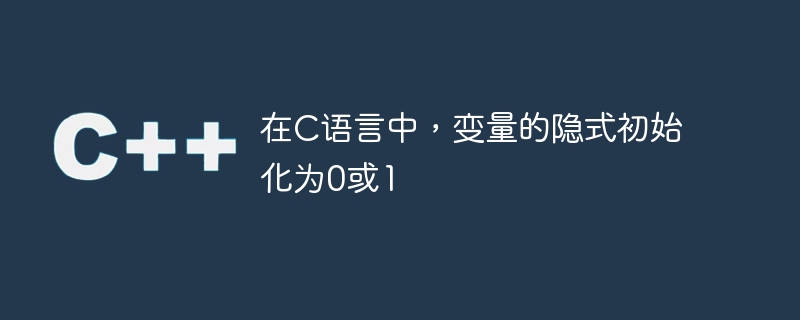
We know that we need to declare variables before using it in our code. However, we variables can be assigned with 0 or 1 without declaration. In the following example we can see this.
Example
#include#include x, y, array[3]; // implicit initialization of some variables int main(i) { //The argument i will hold 1 int index; printf("x = %d, y = %d ", x, y); for(index = 0; index < 3; index++) printf("Array[%d] = %d
", i, array[i]); printf("The value of i : %d", i); }
Output
x = 0, y = 0 Array[0] = 0 Array[1] = 0 Array[2] = 0 The value of i : 1
有时候,如果某个数组只初始化了一部分值,那么剩下的值会被设置为0。
#include#include int main() { //The argument i will hold 1 int index; int array[10] = {1, 2, 3, 4, 5, 6}; for(index = 0; index < 10; index++) printf("Array[%d] = %d ", index, array[index]); }
Output
Array[0] = 1 Array[1] = 2 Array[2] = 3 Array[3] = 4 Array[4] = 5 Array[5] = 6 Array[6] = 0 Array[7] = 0 Array[8] = 0 Array[9] = 0































